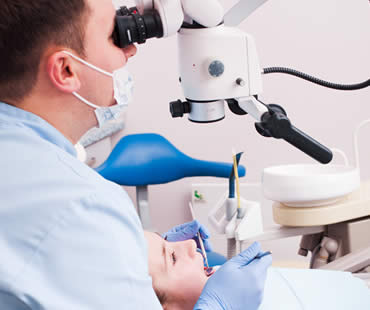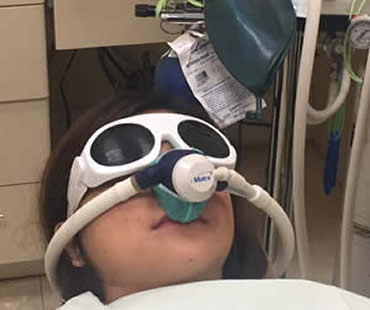
Problems with your mouth or teeth can occur suddenly. You might be injured playing a sport, eating, or even just while doing a seemingly harmless activity. You should know what types of dental problems are considered emergencies, and what to do while waiting to see your dentist. Quick action can make a big difference in saving a tooth, or limiting damage to your mouth or face.
What is considered an emergency?
Not every dental problem must be treated as an emergency, but some do require professional treatment as soon as possible. This includes a broken or knocked out tooth, lost crowns and fillings, severe toothache, infection, and injuries to the soft tissues of your mouth.
What should I do?
See your dentist as soon as possible to treat the problem and prevent further damage. Here are some steps to take if you experience any of the following common dental emergencies:
- Severe toothache – rinse your mouth with warm water and floss to remove trapped food.
- Swelling – apply a cold compress on the outside of the swollen area. Do not place any painkiller or aspirin against your gums, because it can burn your gum tissue.
- Chipped or broken tooth – if possible, save the piece that has broken off. Rinse both the piece and your mouth with warm water. If it is bleeding, hold gauze on the area. Apply a cold compress to relieve pain and reduce swelling.
- Lost filling – apply dental cement from your drugstore to fill the hollow area until you can see your dentist. Or, try placing a bit of sugarless gum into the area.
- Lost crown –try to replace the crown on your tooth and hold it in place temporarily with dental cement, denture adhesive, or toothpaste.
- Abscess – infections in your mouth can become abscessed, which is a serious condition. Rinse with warm salt water and see your dentist immediately.
- Soft tissue injuries – treat damage to your gums, cheeks, tongue and lips by rinsing with warm salty water. Hold gauze to the specific area to control bleeding, and hold a cold pack to the external area.
Schedule your appointment at our Haymarket dental office

If you suspect you have an infected tooth, you might wonder if root canal treatment might be in your future. Do you have another option? Yes! One such alternative has been in existence for decades, but has only recently come to be more effective due to advancements in materials. This process is called pulp capping.
Pulp capping can help patients whose root infections have not yet reached the tooth’s nerve. Root infections begin when bacteria enters the pulp of the tooth through a crack or a large cavity. In a standard root canal procedure, the pulp and nerve of the tooth is hollowed out, cleaned and sealed, typically with a crown restoration.
With pulp capping, the nerve is preserved and the tooth is often repaired with a filling instead of a crown. Pulp capping allows the dentist to clean and protect the pulp, defending it from infection with medicine. With a successful pulp cap, the dentin of the tooth begins to regrow over the pulp cap. Advancements in the sealants used during these types of procedures has allowed for a greater percentage of success.
If you have a toothache, it’s important to see your dentist immediately. Pulp capping has a narrow window in which it can be performed. If your tooth is too infected, the pulp and nerve of your tooth may already be infected, and it’s too late for pulp capping to be effective.
A pulp cap is a far less invasive procedure than a root canal treatment or a tooth extraction, and there is less recovery time and tooth sensitivity following the treatment.
If you suspect you may have a tooth in trouble, talk to your dentist now. You might be able to save yourself a root canal treatment.
Schedule your appointment at our Haymarket dental office

Pregnancy is an exciting time in your life that brings about many changes to your body. Your oral health is affected as well. There are specific things to keep in mind during pregnancy related to your teeth, gums, and caring for them. Let’s talk about the things you should be thinking about for your mouth while expecting a baby.
Medications:
Tell your dentist about any prescription or over-the-counter medicines you’re taking, so that it’ll be easier to prescribe any drugs needed for you during dental treatment. Your dentist may also want to consult your doctor to discuss safe painkiller or antibiotic options for you during pregnancy.
X-Rays:
If you have a dental emergency or a problem that needs diagnosis, an X-ray may be required. Radiation exposure from dental X-rays is very low, but your dentist will cover you with a leaded apron to protect your abdomen. A leaded thyroid collar will also be used to protect your thyroid from radiation.
Gingivitis:
It’s not uncommon for some women to develop pregnancy gingivitis, which is a gum problem that occurs during the hormonal fluctuations of pregnancy. This condition is an inflammation of the gums that causes tenderness, swelling, and usually some bleeding during dental hygiene tasks. Your dentist may suggest more frequent cleanings during pregnancy to prevent gingivitis, because left untreated it can advance to more serious gum disease.
Pregnancy tumors:
Some pregnant women experience overgrowths of tissue called pregnancy tumors, which appear on the gums mostly during the second trimester. They are not cancerous and are usually located between your teeth. Dentists believe they are related to having too much plaque. Pregnancy tumors bleed easily and appear red and raw. Usually they go away after the baby’s birth, but some women prefer to have them removed before then. Discuss options with your dentist to see what’s best for you.
If you live in the Haymarket area contact us today

Your family, general, or pediatric dentist or orthodontist may refer you to an oral and maxillofacial surgeon for some dental treatments that require oral surgery. An oral surgeon is a specialist who has graduated from an accredited dental school and also completed additional education and residency related to surgical procedures needed to treat various oral diseases and conditions. An oral surgeon is trained in treating the following conditions:
- Removal of diseased or impacted teeth
- Placement of dental implants
- Treatment of facial trauma involving gums, jaws, nasal cavities, cheekbones, eye sockets, and forehead
- Evaluation of pathologic conditions such as cysts and tumors of the mouth and face or acute infections of the oral cavity, salivary glands, neck, and jaws
- Treatment of facial pain including those caused by temporomandibular (TMJ) problems
- Cosmetic or reconstructive surgery to correct jaw, facial bone, and facial soft tissue problems
- Corrective jaw surgery
- Cleft lip and cleft palate repair
- Surgical treatment for sleep apnea
There are many different techniques that oral surgeons use to accomplish your treatment goals. The choice of techniques may vary between surgeons and should be discussed between you and your surgeon prior to the procedure.
Many oral surgery procedures can be completed in an outpatient setting. Often you are only in the office for a few hours and can return to your regular routine in a matter of days. A good oral surgeon will be able to perform these procedures with little chance of complications, and will be able to provide you with the information you need to understand the recovery process. Your oral surgeon will often collaborate with other specialists, such as an orthodontist or cosmetic dentist, to achieve your ultimate treatment goals.
If you live in the Haymarket area contact us today

It may be obvious when you’re in a situation that requires immediate treatment by a dentist. Perhaps you’re in immense pain, or you’ve had a tooth knocked out or bleeding that won’t stop. Examples like this make it easy to decide you need help right away, but sometimes it’s not as clear. What are some other problems that may require emergency dental treatment?
Cracked teeth
A cracked or fractured tooth is serious, and often means that the tooth has been damaged both on the inside and the outside. Many times the tooth can’t be saved. If your tooth is broken, schedule an emergency appointment immediately. Remember, a cracked tooth is different than a chipped tooth, which is not as serious. You can usually wait to see your dentist at the next available opportunity for a chipped tooth.
Lost fillings
Some lost fillings require immediate care to avoid worse issues. Fillings protect your tooth’s root from exposure, so if the filling falls out your root can be uncovered and cause intense pain. There is also increased risk for damage to your tooth’s structure, so seeing your dentist as soon as possible is suggested.
Lost crown
If your crown falls out, call your dentist for an appointment as soon as possible. Until you can see the dentist, try putting the crown back in place using an over-the-counter dental adhesive. Do not use any products like Super Glue. If the crown won’t stay in place, make sure you take it to your appointment with you so that it can be re-cemented correctly.
Abscess
If you have a painful swelling on your gum that resembles a pimple, it might be a serious condition called an abscess. It can damage gum tissue and teeth, as well as spread serious infection to your body. See your dentist immediately for proper treatment.
We treat patients from Haymarket and the surrounding area

One of the most commonly used sedatives in dentistry is nitrous oxide, often referred to as laughing gas. It provides an effective technique in sedation dentistry, allowing patients to feel carefree and happy and pain-free. If used correctly by qualified dentists, nitrous oxide is a safe and valuable sedative.
Nitrous oxide is typically used when patients experience mild to moderate anxiety or fear when seeing the dentist for treatment. The gentle sedative properties of this gas helps patients who are not in extreme panic, but simply need calming.
One appealing thing about nitrous oxide is that it is administered by inhaling it through a mask placed over the nose. There are no needles required, which is a great benefit to many nervous patients. Another plus is that patients remain awake and aware of the environment during treatment, but are no longer anxious or upset about what is happening.
Some additional benefits of nitrous oxide include:
- The sedation level may be adjusted at any time during treatment.
- Since the healthcare professionals have control over the nitrous oxide at all times, it is a very safe choices and nearly impossible to overdose.
- It works quickly, with the calming effects taking place in under three minutes of being administered.
- Lengthy or complicated dental procedures can be performed while the patient is content and often unaware of the time spend in the dental chair. This also increases the dentist’s ability to perform multiple procedures in one visit.
- Nitrous oxide is safe for patients with medical conditions like heart disease, diabetes, and epilepsy.
Sedation dentist in Haymarket










